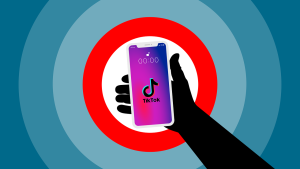Authors: Pat Pascarella and Aaron Gott
The idea of Elon Musk purchasing TikTok might sound like a headline ripped from a speculative business column, and maybe it is. But as antitrust lawyers, we couldn’t resist. Obviously, Mr. Musk already owns X, and any such acquisition might raise antitrust concerns.
But could you head off those concerns by structuring the deal with an exception to the antitrust laws known as a Joint Operating Agreement? While JOAs were related to the newspaper industry and are largely seen as a relic of the past, their principles could provide a framework for addressing modern concerns.
A Brief History of Joint Operating Agreements
Joint Operating Agreements emerged during the 20th century as a mechanism to save failing newspapers thereby maintaining at least some level of editorial competition. By the mid-20th century, many U.S. cities had two major newspapers, but declining revenues and readership often left one teetering on the edge of closure. To prevent monopolization of the news market, Congress enacted the Newspaper Preservation Act of 1970, which allowed competing newspapers to enter into JOAs.
Under a JOA the two newspapers would be permitted to merge their business operations, so long as they agreed to maintain separate editorial teams. The goal was to preserve journalistic diversity in cities that were about to find themselves with only one surviving paper. But JOAs required approval from the Department of Justice (DOJ) and were contingent on demonstrating that one of the newspapers was “failing.”
JOA Requirements
For a JOA to be approved, the following conditions had to be met:
- Failing Firm Doctrine: One of the parties had to demonstrate that it was financially unsustainable and would likely exit the market absent the agreement.
- No less anticompetitive alternative: There must not be a less anticompetitive alternative to the joint operation agreement.
- Preservation of Competition: The agreement had to preserve a degree of competition, particularly in areas such as content creation or editorial independence.
- DOJ Oversight: The DOJ maintained the authority to review and approve any proposed JOAs, ensuring they aligned with antitrust laws.
Applying the JOA Framework to a Musk-TikTok Deal
Elon Musk’s ownership of X likely would raise antitrust concerns about the acquisition of TikTok. But a JOA (or JOA.2) could provide a creative solution to balance these concerns with broader policy objectives, such as ensuring competition with other tech giants like Meta and Alphabet while also addressing national security issues tied to TikTok’s current Chinese ownership.
A critical hurdle, however, would be demonstrating that TikTok meets the “failing firm” criterion. While TikTok is far from failing financially, isn’t “failing” simply another term for “about to involuntarily exit the market.” Same outcome, hence same justification.
But this difference could mean a crucial difference under the JOA legal framework. As explained above, there must be no less anticompetitive alternative available. When it came to the failing newspapers, there was no alternative: failing newspapers did not have buyers lining up to buy them. But popular social media platforms do.
But there’s an answer here as well. One idiosyncrasy of the TikTok situation is that the Chinese government has taken the position that the TikTok algorithm is a Chinese national security secret. So any sale of TikTok means, as a practical matter, that it is not likely to come with a functioning algorithm. This limits the potential pool of buyers to those who either have one they can adapt or who can put one together on the fly.
This likely narrows significantly the existing pool of willing buyers to those who already have social media companies, or possibly even to those people who are known to drive their teams to accomplish skunkworks-like missions on impossible timelines.
Political and Regulatory Considerations
Any proposal involving a JOA between Elon Musk and TikTok would face intense scrutiny from regulators and lawmakers. Additionally, such a deal would likely face pushback from consumer advocacy groups, competing tech companies, and international stakeholders. To succeed, it would need to demonstrate clear benefits to consumers, competition, and national security—all while navigating a highly polarized political environment. Of course, all that was also true for all the original newspaper JOAs.
Conclusion
A Joint Operating Agreement might seem like an unconventional tool for addressing the complexities of an Elon Musk acquisition of TikTok. But its principles could offer a pathway to reconcile competing priorities: preserving competition, addressing national security concerns, and fostering openness and innovation in the social media landscape.
 The Antitrust Attorney Blog
The Antitrust Attorney Blog



